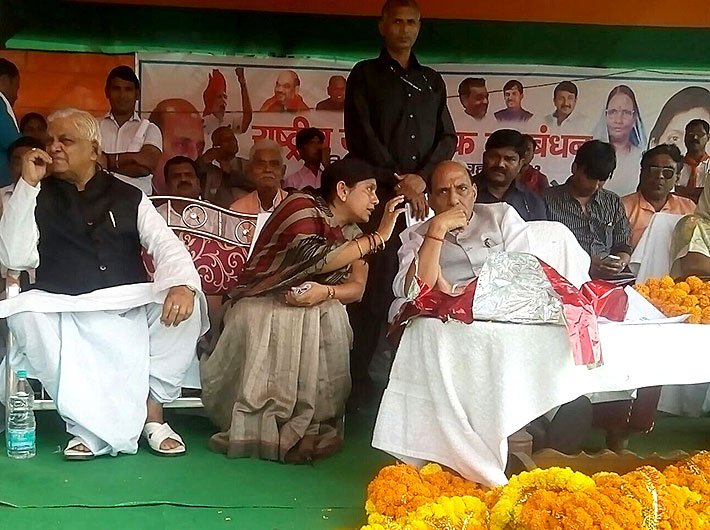They are carrying out discreet calculations not limiting their choice to a single factor
Sukumar Pasi, a native of Sarai village in Vaishali district and a Tadi (Palm wine) trader is lifting the earthen pots filled with wine, as he speaks about the ongoing elections in Bihar. He talks passionately about what he thinks of the scenario. He says, “See, the credit of waving off taxes on Tadi goes to Lauji. I earned a lot of money due to this. But we have already tried him and now it’s time for us to think about giving BJP a chance.”
Pasi however does not admit to his love for BJP. "There is still time for the voting and for us (his community) to decide the choice of our candidate. May be we will decide on the polling day itself,” he chuckles.
Pasi’s place Vaishali is where Lord Buddha had attained his nirvana and Lord Mahavir was born. It is here that world’s first republic was established in 6th century BC much before the one founded in ancient Greece. Even today holding debates is a way of life with the local people. So, this election [voting was held on October 28] the silence of voters is intriguing. Gone is the usual aggression shown by the voters on caste lines and talking openly about favourite party or a candidate is not done. However, on prodding, one realises that most of them have made up their minds but they discreetly avoid talking about it.
"Nitish ji has joined hands with Lalu, so there is a possibility that the jungle raj may come back,” says said Ranjay Kumar of Lakhisarai. However, Kumar is still not clear about as to why he should vote for the BJP. “We don’t know who will become the chief minister if the BJP comes to power," he says.
It seems a new generation of voters born after the ‘madalisation’ – an euphemism for rise of caste based politics after 1992 - sees things differently, today. Over the years the traditional animosity between those who had benefited and those who suffered from this kind of politics has almost ended. This generation doesn’t share the angst of their parents on politics of reservation. They are looking at politics from a different prism.
“Caste may still be a factor in voting but the kind of hatred and rivalry we used to see among the caste groups in the nineties does not exist now,” Rameshwar Tanti, a small time political activist from Sheikhpura says.
"Laluji is talking rubbish. Even the prime minister is stooping low by responding to his barbs and accusations,” says Chandan Rai from Sonho, Chhapra. He believes that caste alone cannot decide elections. “Caste is not the only issue and if it was, then why did Rabri Devi lose in Raghopur,” he asks.
In today’s Bihar, caste lines are blurred as the upper caste leaders are seen seeking votes and offering support to a ‘mahadalit’ leader like Jiten Ram Manjhi. With leaders like Manjhi leading the BJP-led alliance, the optics of Bihar election is about the new found love between the former oppressors and their victims.
Over all a common voter is reading the situation so closely that he refrains from speaking his mind. "We want to give a chance to the BJP to govern the state but we are not sure if the stint will be better than that of Nitish Kumar’s,” wonders Sandeep Kumar from Jamui [went to polls on October 12]. "We know that Modi is not going to rule Bihar but at the same time we don't want to go back to Lalu’s era too," he adds.

